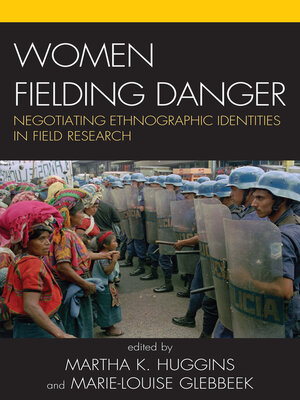Women Fielding Danger
ebook ∣ Negotiating Ethnographic Identities in Field Research
By Martha K. Huggins

Sign up to save your library
With an OverDrive account, you can save your favorite libraries for at-a-glance information about availability. Find out more about OverDrive accounts.
Find this title in Libby, the library reading app by OverDrive.



Search for a digital library with this title
Title found at these libraries:
| Library Name | Distance |
|---|---|
| Loading... |
In a compelling exploration of an oft-hidden aspect of qualitative field research, Women Fielding Danger shows how identity performances can facilitate or block field research outcomes. The book asks questions that are crucial for all women engaged in field research. Do researchers enter their field site with a totally neutral identity? Can a researcher's own identity be at odds with how interviewees see her? Could a researcher be of the "wrong" gender, sexuality, nationality, or religion for those being studied? Must some of a researcher's identities be subsumed in certain research settings? How much identity disguise is possible before a researcher violates research ethics or loses herself? Together, these questions inform the book's themes of the centrality of gender, social and political danger, the negotiation of identities, and on-site ethics.
Focusing on ethnographic research across a wide range of disciplines and world regions, this deeply informed book presents practical "to-dos" and technical research strategies. In addition, it offers unique illustrations of how the political, geographic, and organizational realities of field sites shape identity negotiations and research outcomes. Understanding these dynamics, the authors show, is key to surviving the ethnographic field.
Focusing on ethnographic research across a wide range of disciplines and world regions, this deeply informed book presents practical "to-dos" and technical research strategies. In addition, it offers unique illustrations of how the political, geographic, and organizational realities of field sites shape identity negotiations and research outcomes. Understanding these dynamics, the authors show, is key to surviving the ethnographic field.







